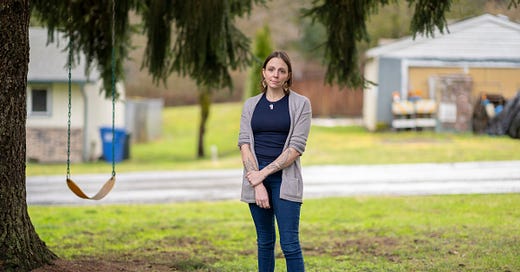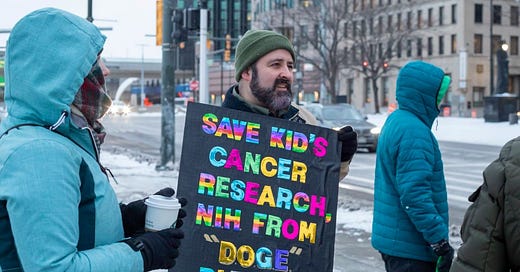
Perhaps you read the long investigation about detransitioners published in this weekend’s New York Times. It is comprehensive and sober and we highly recommend it.
It’s also a piece we are confident would never have made it into the paper were it not for independent publications like ours taking the journalistic and reputational risk over the past few years to pursue the subject of “gender-affirming” care and the subsequent harms inflicted on vulnerable young people. In this, we are proud to stand alongside Hannah Barnes, Lisa Selin Davis, Hadley Freeman, Helen Joyce, Leor Sapir, Abigail Shrier, Jesse Singal, Kathleen Stock, Quillette and others, who took the arrows so that the mainstream press could finally start reporting on what’s really happening.
What is immensely clear is that individual testimonies—whistleblower accounts like those we’ve published by Jamie Reed and Dr. Riittakerttu Kaltiala—have made the change we are now beginning to see.
And that change is now impossible to deny: witness the arrival of lawsuits from young people who say they have suffered the consequences of these life-altering treatments.
Today, therapist Tamara Pietzke adds her voice to those of our other whistleblowers, and tells how she could no longer go along with the pressure to transition her patients.
I know from firsthand experience what hard times are. Though I had a happy childhood, raised as the middle child by working-class parents in Washington State, my mom died of ovarian cancer when I was 22.
After that, my family fell apart. I felt lost and alone.
I decided to become a therapist because I didn’t want anyone to go through what I had, feeling like no one on this planet cares about them. At least they can say their therapist does.
I earned my master’s in social work from the University of Washington in 2012, and I have worked as a therapist for over a decade in the Puget Sound area. Most recently, I was employed by MultiCare, one of the largest hospital systems in the state.
For the six years I was there, I worked with hundreds of clients. But in mid-January, I left my job because of what I will go on to describe.
The therapeutic relationship is a special one. We are the original “safe space,” where people are able to explore their darker feelings and painful experiences. The job of the therapist is to guide a patient to self-understanding and sound mental health. This is a process that requires careful assessment and time, not snap judgments and confirmation of a patient’s worldview.
But in the past year I noticed a concerning new trend in my field. I was getting the message from my supervisors that when a young person I was seeing expressed discomfort with their gender—the diagnostic term is gender dysphoria—I should throw out all my training. No matter the patient’s history or other mental health conditions that could be complicating the situation, I was simply to affirm that the patient was transgender, and even approve the start of a medical transition.
I believe this rise of “affirmative care” for young people with gender dysphoria challenges the very fundamentals of what therapy is supposed to provide.
I am a 36-year-old single mother of three young kids all under the age of six. I am terrified of speaking out, but that fear pales in comparison to my strong belief that we can no longer medicalize youth and cause them potentially irreversible harm. The three patients I describe below explain why I am taking the risk of coming forward.















